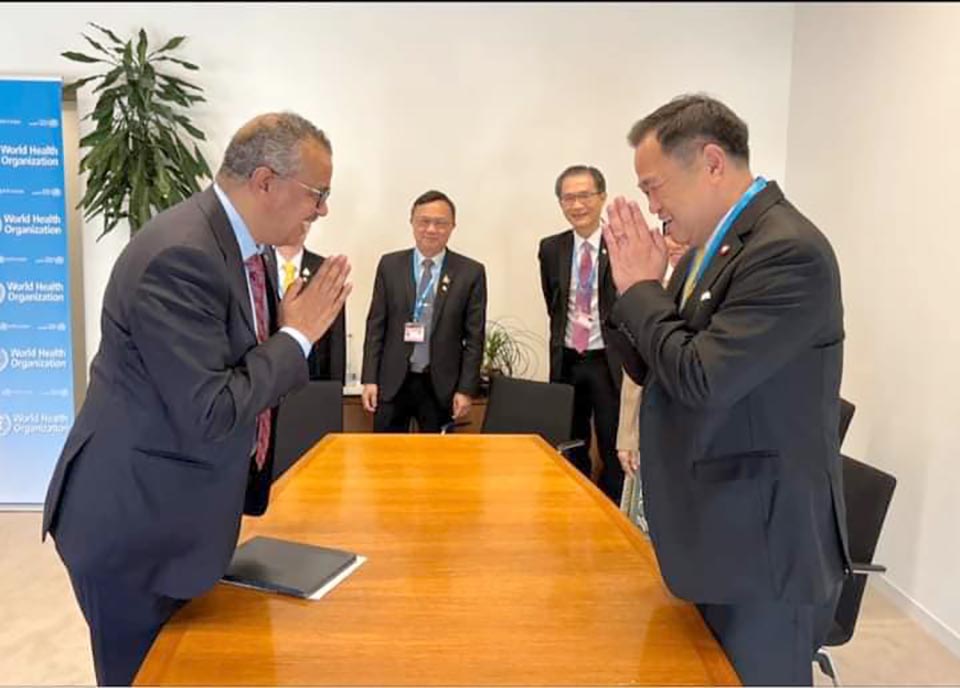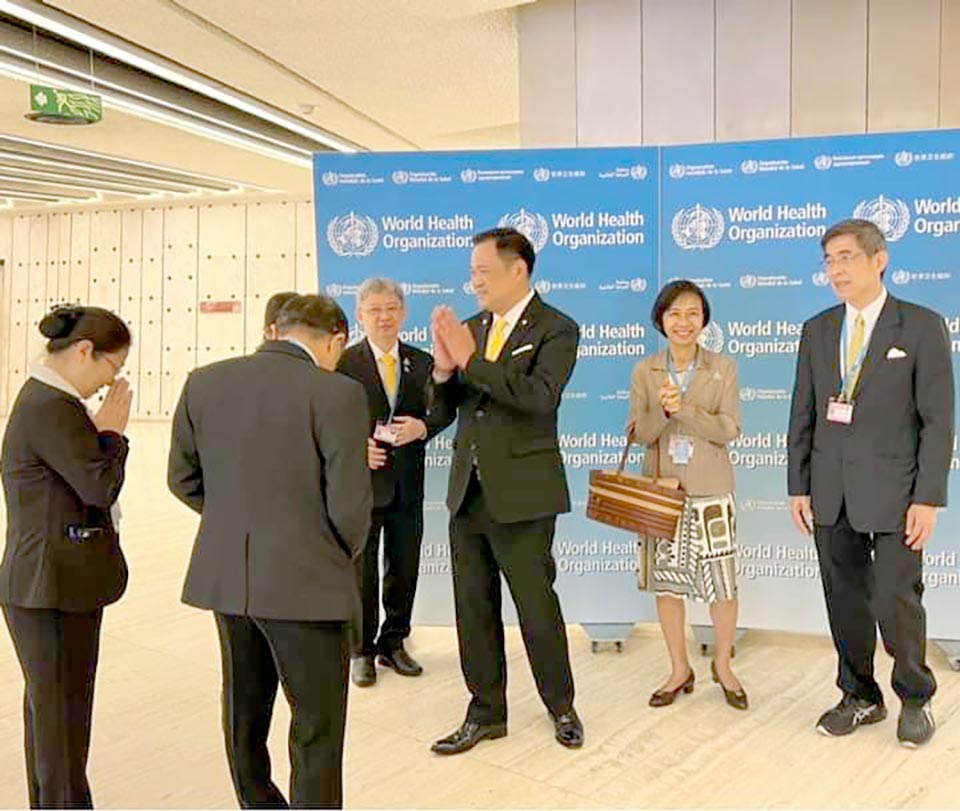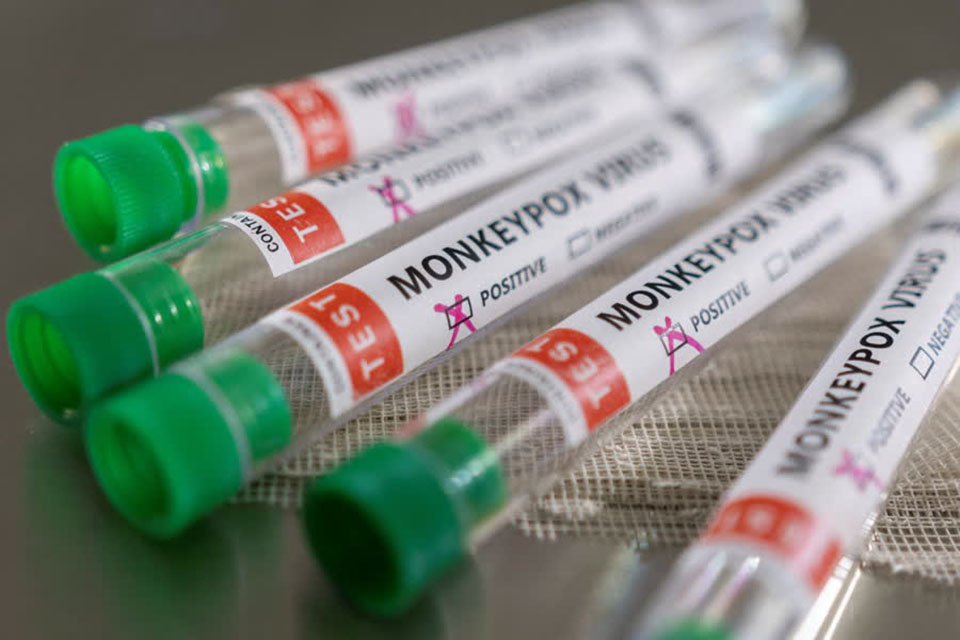
The government is seeking to secure a supply of smallpox vaccine from the World Health Organization (WHO) in order to boost public immunity in the event of a viral outbreak.
Although Thailand has yet to record or detect any cases of monkeypox infection, Public Health Minister Anutin Charnvirakul stated on Thursday (26 May) that the increasing number of foreign arrivals in the country will increase the risk of contagion.
Anutin made the request on the sidelines of the 75th World Health Assembly in Geneva on May 25 during a meeting with WHO Director-General Tedros Adhanom Ghebreysus.
Anutin instructed healthcare facilities nationwide to continue implementing stringent health measures to prevent the spread of monkeypox and to keep the public informed of the situation.
Meanwhile, Prof Dr. Somsak Lolekha, chairman of the Royal College of Paediatricians of Thailand and the Paediatric Society of Thailand, stated that monkeypox is unlikely to become a major public health threat in Thailand, as a large portion of the population has been immunized against smallpox.

According to Prof Dr. Somsak, Thailand ceased mass vaccination after the WHO declared the disease eradicated in 1980, as live-attenuated vaccines, such as the smallpox shot, have been known to cause severe, sometimes fatal, adverse effects, particularly in immunocompromised people.
The US Centers for Disease Control and Prevention said the smallpox vaccine is at least 85 percent effective against monkeypox.
With rodents and small mammals from Africa known to be monkeypox virus vectors, Dr. Chakrarat Pittayawonganon, director of the Bureau of Epidemiology at the Department of Disease Control suggested that all imported animals from the continent be inspected and registered with the Department of National Parks, Wildlife, and Plant Conservation.
Other health experts urged the public to be extra cautious when gathering in crowded public places to avoid infections, noting that a large cluster was recently discovered following a pride festival in Spain. (NNT)





